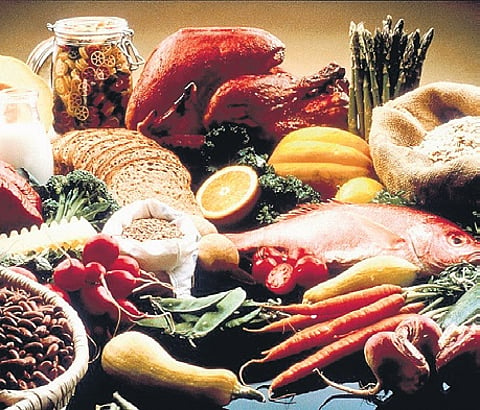

BENGALURU: In the backdrop of the latest dietary guidelines issued by the Indian Council of Medical Research (ICMR) cautioning against the consumption of protein supplements, city doctors too have stressed that individuals can get the desired protein from the food they consume regularly. ICMR has labelled protein supplements as unnecessary and potentially harmful.
Dispelling myths, the National Institute of Nutrition (NIN), Hyderabad, emphasised that even athletes can obtain sufficient protein solely from food, without the need for supplements, and further underscored the risks of prolonged consumption of protein supplements.
“Protein requirements are not as high as commonly perceived. Continued intake of excessive protein poses potential risks, including bone mineral loss and kidney damage,” the recent guidelines stated.
Consistently consuming protein supplements can put pressure on kidney function by elevating glomerular filtration rate (eGFR), which shows how well kidney filtrate and serum creatinine levels, which depicts amount of creatinine in the blood. Moreover, diets high in acidic proteins could contribute to calcium depletion, which can negatively affect bone health, health experts highlight.
Dr Nasiruddin G, Consultant (Internal Medicine) at Fortis Hospital, said, “To build muscle effectively, one must prioritise a balanced diet abundant in complete proteins, supplying all nine essential amino acids crucial for muscle growth.” It is crucial to integrate a variety of protein sources throughout the day, such as lean meat, fish, eggs, dairy products like greek yogurt and cottage cheese, as well as plant-based options like beans, lentils, quinoa, tofu, nuts, and seeds, he added.
Dr Nasiruddin explained that this approach ensures a steady intake of essential amino acids, supporting natural muscle development without relying on protein supplements. “One must aim for at least 0.36 grams per pound of body weight (0.8 grams per km) of protein daily, the minimum requirement to meet one’s body needs,” he highlighted.
Edwina Raj, Head of Services, Clinical Nutrition and Dietetics at Aster CMI Hospital emphasised the importance of obtaining daily protein and Essential Amino Acids (EAAs) from natural sources through mindful eating, before turning to supplements, as natural sources offers numerous benefits and necessary EAAs required for muscle growth and repair.